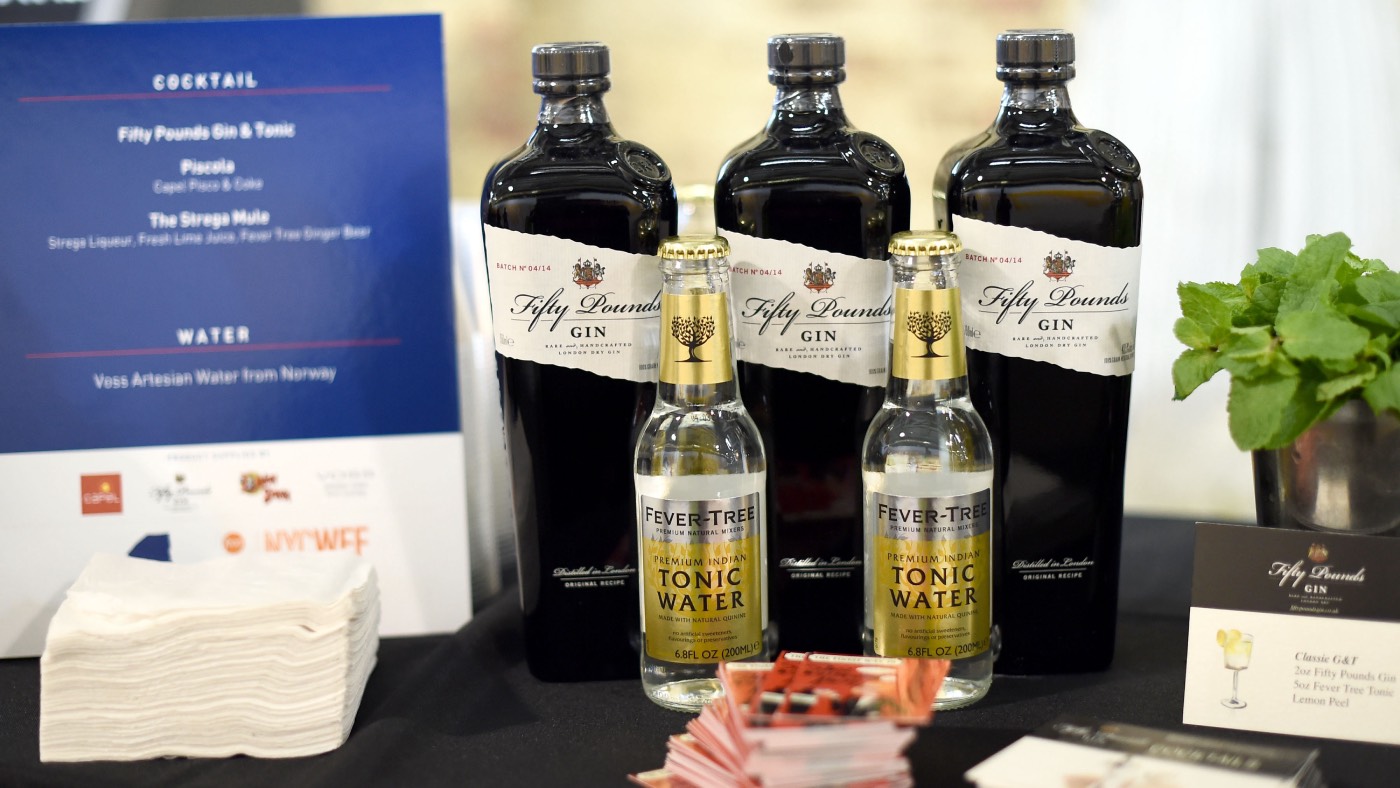Fever-Tree issues profit warning after flat Christmas
Shares in the drinks maker plunge by 24% as sales dip

A free daily email with the biggest news stories of the day – and the best features from TheWeek.com
You are now subscribed
Your newsletter sign-up was successful
The drinks manufacturer Fever-Tree has issued a profit warning and cut its sales forecast for the second time in two months.
Chief executive, Tim Warrillow, said Fever-Tree had endured a subdued end to the year in the UK, when full-year sales dipped 1% to £132.6m.
The company’s shares plunged 24% after the company announced it expected full-year profits to be about 5% lower in 2019 than in 2018, when Fever-Tree reported a 34% jump in pre-tax profits to £76m.
The Week
Escape your echo chamber. Get the facts behind the news, plus analysis from multiple perspectives.

Sign up for The Week's Free Newsletters
From our morning news briefing to a weekly Good News Newsletter, get the best of The Week delivered directly to your inbox.
From our morning news briefing to a weekly Good News Newsletter, get the best of The Week delivered directly to your inbox.
The Guardian says shares in the “former stock market darling” were trading at £15.05 on Monday, the lowest level since April 2017.
Describing the trading update as “ugly reading,” Nicholas Hyett, an equity analyst at Hargreaves Lansdown, said Fever-Tree’s falling sales will “inevitably spark fears the gin boom has turned to bust”.
However, Bloomberg says that the company is being “squeezed” precisely because the gin and tonic market is “crowded”.
The decline in sales in the UK contrasted with a 33% jump in the US, a 16% climb in Europe and a 32% rise in the rest of the world for Fever-Tree.
A free daily email with the biggest news stories of the day – and the best features from TheWeek.com
Although the tonic maker said the US growth was “particularly encouraging” it warned that its investment plans will curb 2020 growth in the region, which it now expects to hit low double digits this year.
Fever-Tree was started by Plymouth Gin boss Charles Rolls and advertising executive Tim Warrillow. The two men, who met in 2003, launched the company in 2005.
It is named after the everyday name for the cinchona tree, from whose bark the natural anti-malarial drug and core tonic water ingredient, quinine, is produced.
–––––––––––––––––––––––––––––––For a round-up of the most important business stories and tips for the week’s best shares - try The Week magazine. Start your trial subscription today –––––––––––––––––––––––––––––––